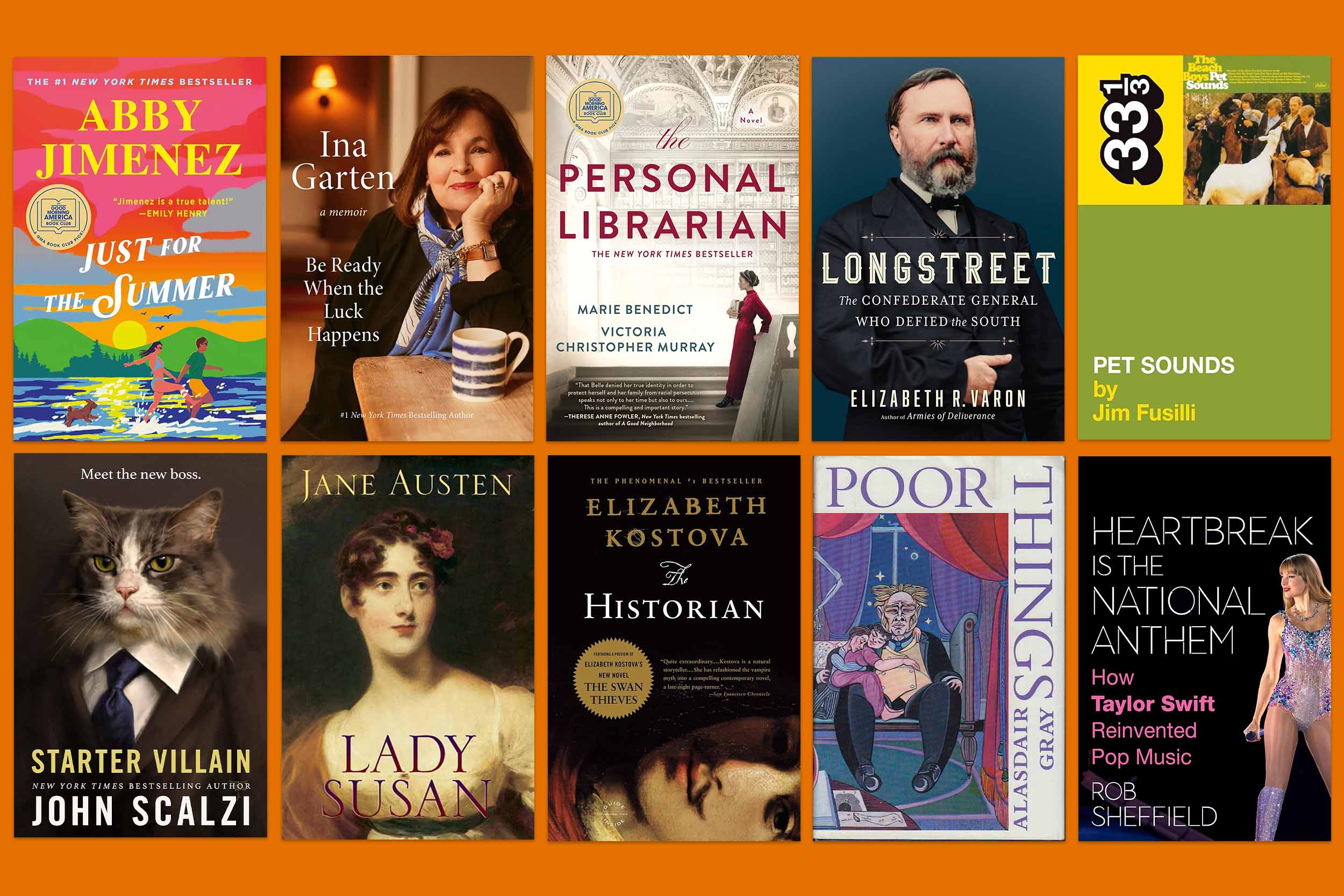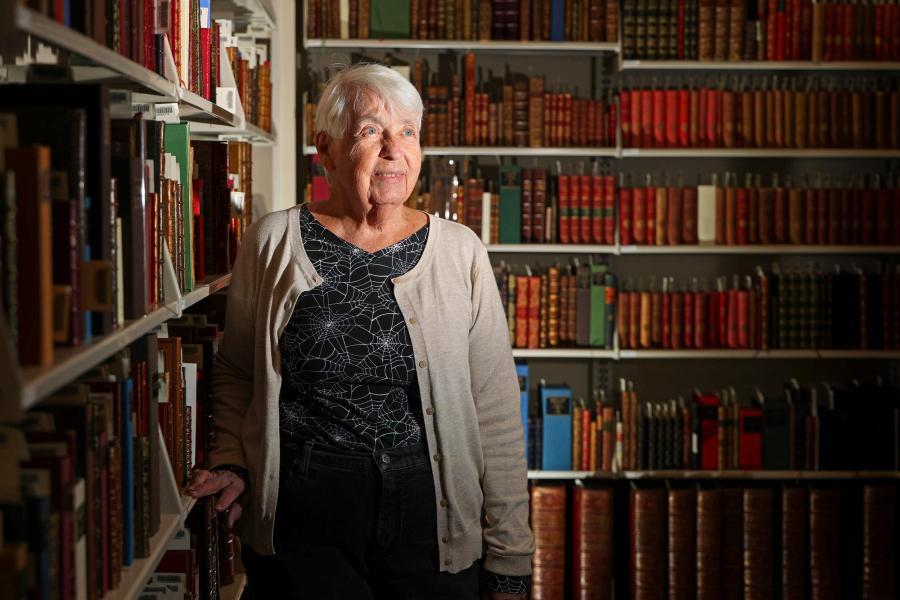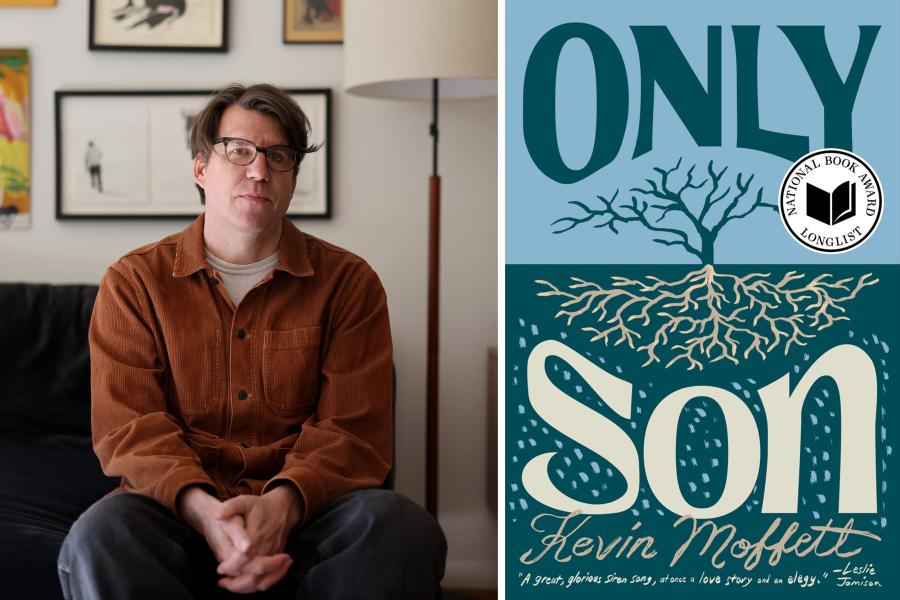The extra daylight hours summer brings also mean more time for reading.
Whether you’re spending the season by the beach, lounging at a pool or holed up inside with the AC blasting, summer’s more relaxed pace invites you to crack open a book and immerse yourself in a new world.
UVA Today talked to members of the University of Virginia Library staff for their recommendations on what to read this summer.
From Kelly Graham, Director of Development
“The Personal Librarian,” by Marie Benedict and Victoria Christopher Murray
Anyone who loves libraries and historical fiction should read “The Personal Librarian.” Belle da Costa Greene’s story is remarkable and inspiring, and I was hooked from the first page. Thank you to UVA alumna Eileen Burgwyn for the recommendation!
“Be Ready When the Luck Happens,” by Ina Garten
Again, I love memoirs. I found Ina Garten’s memoir to be insightful, mostly lighthearted and sweet (literally), and just a delightful, quick read.
“Just for the Summer,” by Abby Jimenez
If you’re looking for a true beach read, pick up any book by Abby Jimenez. I find myself caring deeply about her characters, and her writing is witty, endearing and hopeful.
From Dan Ray, Music Metadata Librarian
“Heartbreak is the National Anthem: How Taylor Swift Reinvented Pop Music,” by Rob Sheffield
A rewarding and insightful exploration of the cultural and artistic impacts of the pop icon, by a UVA alumnus. It is a short book, but worth taking the time to listen as you read, especially for someone outside the fortress of fandom.
This examination of the Beach Boys’ 1966 album ranges from dense and technical to intimate and personal. It is part of the 33 1/3 series of books, each exploring a specific album in depth. They are the perfect length to read on a flight. Just don’t forget to download the album, too, because you will want to listen as you read.
“Longstreet: The Confederate General Who Defied the South,” by Elizabeth R. Varon
Gen. Longstreet was a complicated guy with an amazing beard. This book provides context for what it meant to support reunification and Reconstruction as a veteran of the Confederacy. An insightful read for anyone with an interest in military history or civil rights.










